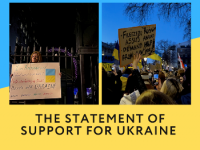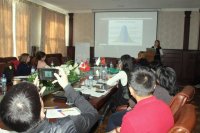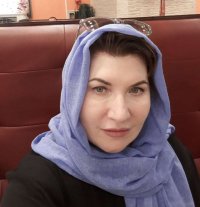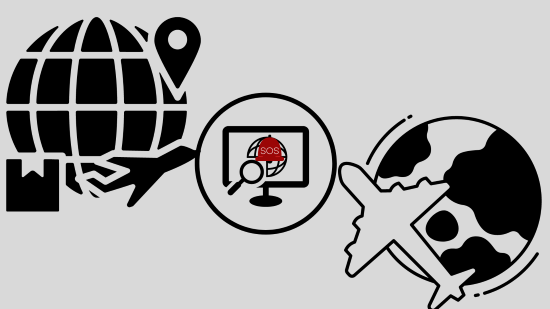![]() Opponents of Kyrgyz independent
media must stop speaking because local audience prefer objective and diverse
information, while media outlets serve public interests.
Opponents of Kyrgyz independent
media must stop speaking because local audience prefer objective and diverse
information, while media outlets serve public interests.
It’s due to independent media and journalists that Kyrgyzstan is still on best positions in international rankings[1], leaving all Central Asian states and many other states in the ex-Soviet area behind.
Attempts made by some groups who organised the protest in Bishkek demanding to close independent media outlets are against the constitution.
They breach article 10 of the Constitution of the Kyrgyz Republic, in particular regarding the statement that "media outlets are free and carry out their operations according to the law.”
The protest was held on October 13, 2022 in front of the Radio Azattyk office in Bishkek[2].
Moreover, the protest was organised amid consideration of the regular report by Kyrgyzstan on observation of the International Covenant on Civil and Political Rights submitted to the UN Human Rights Committee, which takes place this day.
An underhand initiative of deputies on countering independent media outlets and their demands of their closure are nothing else but attempts to escalate the situation in society.
Parliamentarian Dastan Bekeshev confirmed the fact of collection of signatures for closure of independent media outlets in his Telegram channel.
The School of Peacemaking and Media Technology in CA expresses its utmost concern about the fact that such actions intend to distract people’s attention from the current socio-political agenda and serious issues in Kyrgyzstan.
Use of the long-time leverage against independent media, setting them against society can have negative consequences.
We urge legislators, the government and organisers of similar actions to stop manipulating by independent media and to immediately respond to the threats voiced against media groups.
Attacks on the media and media workers increase every year in Kyrgyzstan.
According to the annual report of the School of Peacemaking and Media Technology in CA and the Justice for Journalists Foundation, the number of incidents against media has increased almost three times in the last five years in the country.
[1]https://rsf.org/en/index
[2]https://24.kg/proisshestvija/247941_vbishkeke_vozle_ofisa_azattyika_prohodit_miting_trebuyut_zakryit_smi/

![]() The media of Central Asia,
who informed about last week’s armed clashes
and cross-border violence between
Kyrgyzstan and Tajikistan must
use peace journalism tools, according to the message
of the School of Peacemaking and Media
Technology in Central Asia.
The media of Central Asia,
who informed about last week’s armed clashes
and cross-border violence between
Kyrgyzstan and Tajikistan must
use peace journalism tools, according to the message
of the School of Peacemaking and Media
Technology in Central Asia.
Analysis of the media space showed that the armed clashes narratives dominated in daily news.
The audience received information on battles, victims, violence and military actions.
However, the media content was more war-oriented.
The media outlets published no materials focused on decisions offering and analysing various options of peaceful initiatives.
The School of Peacemaking encourages journalists and content creators to use peace journalism approaches. This approach helps editors and reporters to choose what and how to report on the events to consider non-violent response to the conflict.
 The School of Peacemaking and Media Technology in Central Asia is
announcing the call for participation in the "Reporting on minority and
marginalised groups issues’ workshop” to be held in late October thru early
November 2022 in Bishkek.
The School of Peacemaking and Media Technology in Central Asia is
announcing the call for participation in the "Reporting on minority and
marginalised groups issues’ workshop” to be held in late October thru early
November 2022 in Bishkek.
The working languages of the event are Russian, Kyrgyz.
Journalists and editors from Kyrgyzstan are invited to participate in the training. All costs will be covered by organisers.
To take part in the call, you have to submit a filled application form, a CV of a potential participant, a scanned copy of a passport, as well as a motivation letter for participation to the e-mail peacemakingandmediaca@gmail.com marked as "For training”.
The main criteria of selection will be their current activities in the sphere, understanding of importance of human rights and promotion of minority and vulnerable group issues in the media.
The deadline for applications is 5.00 pm Bishkek time, October 5, 2022.
Applications submitted after the deadline will not be considered. The team does not comment its selection methods and does not reply to requests after the competition is over.
The event will be held under the Peacemaking School’s programme on the promotion of media freedom and diversity, supported by the Canada Fund for Local Initiatives (CFLI).
 The Coalition for Equality, which brings together 36 civil society organizations and activists in Kyrgyzstan, has addressed the president of Kyrgyzstan and the government with an appeal to provide information about the difficult international situation.
The Coalition for Equality, which brings together 36 civil society organizations and activists in Kyrgyzstan, has addressed the president of Kyrgyzstan and the government with an appeal to provide information about the difficult international situation.
 Justice for Journalists Foundation
(JFJ)andthe undersigned organisations, stand in solidarity with the
people of Ukraine, but particularly Ukrainian journalists who now find
themselves at the frontlines of a large-scale European war.
Justice for Journalists Foundation
(JFJ)andthe undersigned organisations, stand in solidarity with the
people of Ukraine, but particularly Ukrainian journalists who now find
themselves at the frontlines of a large-scale European war.
We unilaterally condemn the violence and aggression that puts thousands of our colleagues all over Ukraine in grave danger.
We call on the international community to provide any possible assistance to those who are taking on the brave role of reporting from the war zone that is now Ukraine.
We condemn the physical violence, the cyberattacks, disinformation and all other weapons employed by the aggressor against the free and democratic Ukrainian press.
We also stand in solidarity with independent Russian media who continue to report the truth in unprecedented conditions.
Join the statement of support for Ukraine by signing it here.
#Журналісти_Важливі
Signed:
1. Justice for Journalists Foundation
2. Index on Censorship
3. International Foundation for Protection of Freedom of Speech "Adil Soz”
4. International Media Support (IMS)
5. Yerevan Press Club
6. Turkmen.news
7. Free Press Unlimited
8. Human Rights Center "Viasna”
9. Albanian Helsinki Committee
10. Media Rights Group, Azerbaijan
11. European Centre for Press and Media Freedom
12. Association of European Journalists
13. School of Peacemaking and Media Technology in Central Asia
14. Human Rights Center of Azerbaijan
15. Reporters Without Borders, RSF
16. Association of Independent Press of Moldova, API
17. Public Association "Dignity”, Kazakhstan
18. PEN International
19. Human Rights House Foundation, Norway
20. IFEX
21. UNITED for Intercultural Action
22. Human Rights House Yerevan
23. Helsinki Citizens’ Assembly – Vanadzor, Armenia ??
24. Rafto Foundation for Human Rights, Norway
25. Society of Journalists, Warsaw
26. The Swedish OSCE-network
27. Hungarian Helsinki Committee
28. Legal policy research centre, Kazakhstan
29. Public Foundation Notabene – Tajikistan
30. HR NGO "Citizens’ Watch – St. Petersburg, Russia
31. English PEN
32. Public organization "Dawn” – Tajikistan
33. International Press Institute (IPI)
34. The Union of Journalists of Kazakhstan
35. ARTICLE 19
36. Human Rights House Tbilisi
37. Rights Georgia
38. Election Monitoring and Democracy Studies Center. Azerbaijan
39. International Service for Human Rights (ISHR)
40. Bulgarian Helsinki Committee
41. Global Forum for Media Development (GFMD)
42. European Federation of Journalists
43. Social Media Development Center, Georgia
44. Populus Rei, Georgia
45. OBC Transeuropa
46. The Bureau of Investigative Journalism
47. Journalists Union YENI NESIL, Azerbaijan
48. Media and Law Studies Association (MLSA) , Istanbul
49. Baku Press Club
50. Centre for Journalism Innovation and Development Premium Times
51. Union Sapari
52. The Coalition For Women In Journalism (CFWIJ)
53. Committee to Protect Freedom of Expression, Armenia
54. FEDERATIA SINDICATELOR DIN SOCIETATEA ROMANA DE RADIODIFUZIUNE, Bucharest, ROMANIA
55. CD FILMS (FRANCE)
56. CFDT-Journalistes
57. Belarusian Association of Journalists
58. SafeJournalists network
59. Association of Journalists of Kosovo
60. Association of Journalists of Macedonia
61. BH Journalists Association
62. Croatian Journalists’ Association
63. Independent Journalists Association of Serbia
64. Trade Union of Media of Montenegro
65. Analytical Center for Central Asia (ACCA)
66. Trade Union of Croatian Journalists
67. European Press Prize
68. Ethical Journalism Network
69. European Journalism Centre
70. Slovene Association of Journalists
71. Investigative Studios
72. PEN Belarus
73. Public Media Alliance (PMA)
 Activists
working in NGOs on the issues of diversity, minorities and social groups from
various regions of Kyrgyzstan trained effective communications with media at the workshop held in Bishkek on November 23, 2017.
Activists
working in NGOs on the issues of diversity, minorities and social groups from
various regions of Kyrgyzstan trained effective communications with media at the workshop held in Bishkek on November 23, 2017.
The training program comprised interactive sessions and practical group exercises. Participants learned about the purposes of communications and newsbreaks, learned how to make standard events interesting for media, understood to find topics that may be of interest for the audience when covering the activities of NGOs in the context of minorities issues.
A special session was dedicated to the freedom of expression, hate speech and stereotypes, and also the skills of compiling glossaries on overcoming hate speech to work with sensitive content. During intensive group games, participants practiced the skills of communicating with journalists, and learned to hold press conferences given the model situation.
Natalya Lyubeznova, a trainer of the workshop, says that effective communications between media and communities will help activists promote significant ideas and projects important for the people.
"Acquiring the interaction skills is needed to establish contacts and relations, to understand the choice of ways of community target achievement, including through the formation of a favorable attitude, which will neutralize the public negative attitude, which was shaped due to various legal initiatives focused on the reduction of civil sector activities,” Lyubeznova emphasized.
 By mid-August, Taliban militants seized much of Afghanistan; on August 15, they took control of Kabul without a fight. President Ashraf Ghani fled the country; the Taliban try to establish their rule and intend to transform Afghanistan into Islamic Emirate. Meanwhile, the rest of the world is rethinking what happened: countries are deciding how to build foreign policy relations with new Afghanistan, as well as what to do with the refugees, who, presumably, will flee the country.
By mid-August, Taliban militants seized much of Afghanistan; on August 15, they took control of Kabul without a fight. President Ashraf Ghani fled the country; the Taliban try to establish their rule and intend to transform Afghanistan into Islamic Emirate. Meanwhile, the rest of the world is rethinking what happened: countries are deciding how to build foreign policy relations with new Afghanistan, as well as what to do with the refugees, who, presumably, will flee the country.
Inga Siukorskaia,Director of the School of Peacemaking and Media Technology in Central Asia Inga Sikorskaya spoke with CABAR.asia Media School about how Central Asian media should cover the situation in order not to increase xenophobia in society towards refugees, and much more.
– How should the journalists report on refugees?
– According to the standards of covering diversity issues, which include such social groups as "refugees” (people who already have this status), "asylum-seekers” and "forced migrants” (those forced to move to a certain country out of fear for their lives and seeking refugee status), the journalist must first analyse how media covered this issue before and identify the gaps.
Often, the media report on such people only in crime news, or in a humiliating context, thereby instilling fear among the audience. A reporter should follow a peacemaking approach: spend a few days in a refugee camp with these people, describe what you saw, how they live, whether they have access to water, their children – to education, healthcare. Let them tell the story in their words. Find people among them who were able to reintegrate into society, and tell about them. Do not forget about ethical terminology and visual content.
During my recent trip to Afghanistan, I spoke a lot with colleagues and ordinary people and I think that in fact, no one intends to flee to Kyrgyzstan, for example. First, you will be surprised, but the Afghan people are the patriots of their country. They can bear the poverty, but the main thing for them – to stay at their homes. Second, those who want to leave Afghanistan after the Taliban takeover do not intend to go to the Central Asian countries at all; they want to go to the United States, to Europe.
– Nevertheless, our authorities have already announced they are going to accept Afghans fleeing the Taliban regime.
– Yes, they announced the intention to accept 1.2 thousand people, but it is not a sure thing that it will be Afghans. It is quite possible that they meant ethnic Kyrgyz people from Badakhshan, who were previously not allowed across the Tajik border. In addition, we must understand that Afghans have already learned the difficult lesson in Kyrgyzstan: some people, who applied for asylum, lived here for 25 years, and left or died, without receiving refugee status.
– In addition, people are afraid not so much of those fleeing the Taliban, as of the Taliban themselves, who will now go to the Central Asian countries, as some experts claim.
– The Taliban have nothing to do here either. What happened in Afghanistan is the internal political processes and the geopolitical struggle for influence in the region, which various experts and politicians used in their mainstream forecasts to spread panic.
– It turns out that journalists help such politicians.
– To some extent. Even today, sensationalised media are contributing to the creation of a negative stereotype not only about refugees, who, by the way, did not appear yet, but also about any foreigners arriving in the country. They maintain and develop a prejudice against people dressed differently, or speaking different languages.
– How does this happen?
– Our society, unfortunately, has many negative stereotypes about Afghanistan. What are the media doing against the background of general hysteria and panic? They post tweets of unknown people without even checking the facts. Authoritative media quote users who post something like, "I went out for a cappuccino, and there were millions of Pakistanis around”.
– What is wrong with this tweet?
– The problem is not the tweet, but the fact that the media reposted it. The phrase "millions of Pakistanis” is exaggerating data. By publishing it, the media commits a gross journalistic error, relaying an outrageous stereotypical perception. It can be reposted, but, according to the journalistic standards and a peacemaking approach, it is necessary to place the facts in the appropriate context. This will remove the problem and enable the audience to understand what is happening in reality. Given the complex political environment, the context should be broad, neutral, not inciting hatred or fear.
Moreover, this is not the only example. You probably noticed the materials about Bishkek residents complaining about the alleged influx of foreigners to the capital of Kyrgyzstan. These messages are also based on user-generated content. Moreover, the media not only cite online users but also use their photos. The photos of people in unusual for Kyrgyz people clothes, possibly Pakistani or Indian students, are being reposted. These clothes are called Pashtun, although it is wrong. Therefore, by creating such messages, the journalists trigger certain groups of people and this, as a result, can lead to hate crimes.
– Would it be right to create a material explaining how Pashtun clothes differ from other national clothes?
– What for? People should not be judged by what they wear. This is unacceptable for the media. Focusing on differences in a particular socio-political context leads to intolerance and hostility. Social media users do this because they are incompetent and lack a degree of journalistic responsibility. But why do the journalists allow this? This is an intolerant approach. A person can wear any clothes, if, of course, we are not talking about some kind of dress codes in official institutions; he/she can speak the most comfortable language. In case the media want to show that there really are some rumors about an alleged influx of refugees, they should conduct an investigation using the tools of Peace Journalism: to talk to these people, understand who they are, and provide the audience with a big picture.
– The media tried to clarify the situation: they published the answers of the border service on how many foreigners had arrived in Kyrgyzstan.
– What was the point of finding this out? The foreigners are always a targeted group in such countries as Kyrgyzstan, where there is a problem with tolerance. In this situation, all of a sudden, the media asked the border guards for information about the number of foreigners who arrived in the country (from Iran, Afghanistan, Pakistan, etc.). Why, in the current disturbing socio-political context, cover this topic in one-sided news? They should provide balanced news, and should not create fear. In addition, is Kyrgyzstan not positioning itself as a tourist destination? We should welcome any foreigners if so.
– What approach should be followed when covering refugees-related issues?
– Now, the main thing is to accurately verify the information and try to balance it. In peacemaking journalism, reporting should focus on peace rather than conflict. In Peace Journalism, there is a rule of "Three Don’ts”:
This approach enables editors and reporters to make choices, that is, decide what facts and in what context to communicate to the audience for the consideration of non-violent responses to the conflict. The conflict here means not only a military conflict but also any situation that can become a source of potential conflicts in society.
– What should journalists remember when covering refugees-related issues?
– Before creating a negative image of people who may possibly arrive from the conflict zone, which I deeply doubt, we need to understand that each of us could find him/herself in their place. Now, I updated all my training materials for journalists and included there the practice of own feelings and understanding that the world is dynamic and unstable. No one can know what will happen tomorrow. The population of any country can be involved in a military conflict. That is, any of us can become a refugee and forced migrant in another country. Because of the appearance, language, cultural differences (which do not comply with some stereotypes in society), with the "support” of unethical, incompetent journalists, any person can be attributed to a target group hated by others.
Title photo: AFP / Scanpix / LETA
This publication was produced as part of the mentorship programme under the Development of New Media and Digital Journalism in Central Asia project delivered by the Institute for War and Peace Reporting (IWPR) with support from the UK Government. It does not necessarily reflect the official views of IWPR or the UK Government
 The School of
Peacemaking and Media Technology in Central Asia announces an annual
competition among students from Kyrgyzstan and Kazakhstan and any countries,
studying journalism and mass communication, law, cultural studies, and
anthropology, to participate in research and media monitoring projects.
The School of
Peacemaking and Media Technology in Central Asia announces an annual
competition among students from Kyrgyzstan and Kazakhstan and any countries,
studying journalism and mass communication, law, cultural studies, and
anthropology, to participate in research and media monitoring projects.
Over the past five years, more than 50 students have completed research internships.
This internship is scheduled for the period from December 15 to January 20, 2022.
In some cases, a student can start an internship earlier.
Due to the epidemiological situation, it is likely that an internship will be carried out in a distance format.
The selected interns will be trained in new analytical tools, will have access to databases, and together with the team, will conduct a few studies.
Participation in the project is a good practice, upon completion of which an internship confirmation letter will be issued. An important criterion for selecting interns is language proficiency, perseverance, attentiveness, a clear application of methodology and indicators in practice, a desire to work with large amounts of information.
Participation in the project is a good practice, upon completion of which an internship confirmation letter will be issued. An important criterion for selecting interns is language proficiency, perseverance, attentiveness, the use of methodology and indicators during research, a desire to work with large amounts of information on the Internet.
Topics for this year:
COVID-19 pandemic and information manipulation
Electoral processes
Xenophobia and hate speech
Terrorism Threats and Media Narratives
A letter of motivation and a CV indicating the contacts of at least two referees should be sent to peacemakingandmediaca@gmail.com until 18:00 Bishkek time, December 5, 2021, marked "For internship".
Applications sent after this deadline will not be considered. The team does not comment on the selection methods and does not respond to letters of inquiry after the end of the call.
The School of Peacemaking and Media Technology in Central Asia announces an annual a competition among students from Kyrgyzstan and Kazakhstan and any countries, studying journalism and mass communication, law, cultural studies and anthropology, to participate in research and media monitoring projects.
Over the past five years, more than 50 students have completed the research internships.
This internship is scheduled for the period from December 15 to January 20, 2022.
In some cases, a student can start an internship earlier.
Due to the epidemiological situation, it is likely that an internship will be carried out in a distance format.
The selected interns will be trained in new analytical tools, will have access to databases and, together with the team, will conduct a few of studies.
Participation in the project is a good practice, upon completion of which an internship confirmation letter will be issued. An important criterion for selecting interns is language proficiency, perseverance, attentiveness, a clear application of methodology and indicators in practice, a desire to work with large amounts of information.
Participation in the project is a good practice, upon completion of which an internship confirmation letter will be issued. An important criterion for selecting interns is language proficiency, perseverance, attentiveness, the use of methodology and indicators during research, a desire to work with large amounts of information on the Internet.
Topics for this year:
COVID-19 pandemic and information manipulation
Electoral processes
Xenophobia and hate speech
Terrorism Threats and Media Narratives
A letter of motivation and a CV indicating the contacts of at least two referees should be sent to peacemakingandmediaca@gmail.comuntil 18:00 Bishkek time, December 5, 2021 marked "For internship".
Applications sent after this deadline will not be considered. The team does not comment on the selection methods and does not respond to letters of inquiry after the end of the call.

Состоялась онлайн конференция, на которой обсуждались риски транснациональных репрессий в работе активистов, медиаработников, юристов и…
Можете ли вы ответить на вопрос: что такое миротворческая журналистика или журналистика мира, как это принято говорить в международной практике?
Это – позитивная журналистика?
Это – смягчение конфликта за счет историй, где говорится о том, как власти решают проблему?
Или это – баланс фактов и мнений, построенных на беспристрастной хронологии освещаемого вами конфликта?
Ни один из трех предложенных вопросов не является миротворческой журналистикой, поскольку она строится на других принципах.
Смотрите видеоурок от Инги Сикорской, директора Школы миротворчества и медиатехнологий в ЦА, медиаэксперта, исследователя, журналистки.
Инга освещала разные конфликтные события, работала в Афганистане, написала ряд учебных пособий для журналистов и активистов, в том числе "Как женщине-журналисту делать визуальные репортажи из Афганистана",
"Как освещать многообразие и этнические конфликты,"Как журналистам избегать языка вражды в своих репортажах" и другие.
Инга проводит семинары по медиа, кризисным и миротворческим коммуникациям в Центральной Азии и других странах.
Смотрите видео-урок с примерами и пояснениями, а потом выполните упражнение.
![]() Группа независимого мониторинга,
экспертизы, анализа и образования Школы миротворчества и медиатехнологий в ЦА
оказывает услуги в НКО секторе, проводит консультации, экспертизу тренинги по
вопросам, связанным с медиасферой и публичным дискурсом.
Группа независимого мониторинга,
экспертизы, анализа и образования Школы миротворчества и медиатехнологий в ЦА
оказывает услуги в НКО секторе, проводит консультации, экспертизу тренинги по
вопросам, связанным с медиасферой и публичным дискурсом.
Мы проводим медиа-мониторинги, медиа-исследования, разрабатываем медиа-планы и стратегии, готовим медиа-аналитику по заданным тематикам, а также предлагаем следующие услуги:
·исследование медиа-сферы на основе мониторинга СМИ на предмет освещения по заданной тематике с использованием уникальной методики, анализ, выработка рекомендаций;
·полный медиа-мониторинг и анализ выделенных публикаций по различным индикаторам, в зависимости от задачи– сбор всех материалов об объекте мониторинга по максимально широкому списку с помощью специальных электронных систем мониторинга, ручного поиска и интеллектуальных инструментов для анализа (кыргызский, русский, английский языки);
·по ограниченному медиа-списку – поиск публикаций об объекте мониторинга по определенному списку СМИ (обычно наиболее авторитетные, популярные, значимые с точки зрения достижения ЦА, издания);
·аналитические обзоры по заданной тематике;
·разработка моделей информационно-просветительских кампаний( интеллектуальная логистика, исследование и анализ ситуации, планирование мероприятий, определение аудитории, стратегия, сбор информации, анализ, разработка послания, определение ожидаемых результатов, тестирование кампании, разработка публичных мероприятий, отслеживание результатов кампании);
·разработка медиа-планов, мониторинг и анализ медиа-активности, кризисный медиа-мониторинг, архивный/ретроспективный медиа-мониторинг;
·консультации по созданию медиа-кампаний;
·тренинговые/обучающие услуги, мастер-классы: разработка тематики и программы тренинга;
·проведение медиа-тренингов/мастер-классов;
·информационные услуги (создание релизов, адаптация пресс-релизов под веб-публикацию. линкование, ссылки, теги и т д);
·разработка сценария и создание видео- и аудио-интервью, тезисы;
·подготовка спикеров для пресс-конференций, разработка сценария пресс-конференции и брифингов, тезисы их выступления;
·разработка медиа-плана для участия, выступающего в тематических программах по социально-значимым вопросам;
·редактирование и обработка текстов (кыргызский, русский, английский языки).
Вышеперечисленные услуги осуществляются по договору оказания платных услуг в некоммерческом секторе и рассчитаны в соответствии с калькуляцией платных услуг на текущий год. За подробной информацией обращаться на peacemakingschool@gmail.com или написать сообщение на Фейсбук https://www.facebook.com/Alinapeacemaker